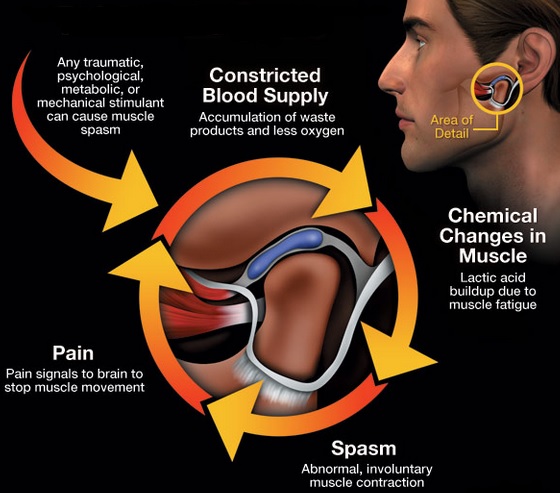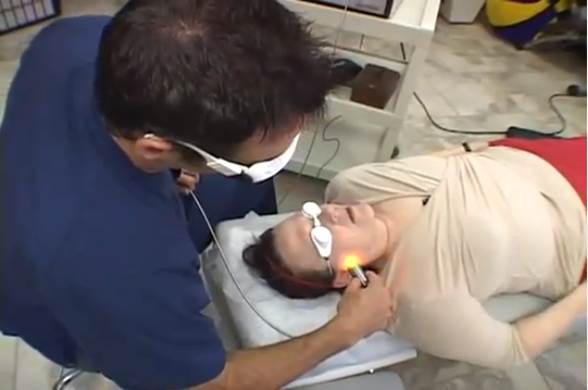
TMJ TREATMENT ORANGE COUNTY
TMJ Treatment – The TMJ or temporomandibular joint is located in the jaw just in front of the ear. TMJ or Temporomandibular Joint Disorders (TMD) occur as a result from problems with the jaw joint and surrounding muscles that control jaw movement. The temporomandibular joint is the hinge joint allows the mouth to open and close during breathing, chewing, talking, yawning, etc. TMJ or Temporomandibular Joint Disorders (TMD) can be caused due to injuries to the jaw and neck, grinding or clenching of the teeth, osteoarthritis or rheumatoid arthritis in the TMJ. Symptoms of TMJ or Temporomandibular Joint Disorders (TMD) can include pain or tenderness around the jaw joint area, pain in the neck and shoulders, jaw locking or hitching (jaw gets stuck), clicking and or popping of jaw with motion, feeling of tiredness in jaw, headaches, dizziness, ear pain, swelling, ringing in the ears (tinnitus).
If you look in the mirror and open and close your mouth you will see the jaw tracking to one side then the other vs. in unison. Patients usually feel tightness in the TMJ muscles with one side being more prominent. If you palpate the muscles of the TMJ one side will be more tender than the other.

